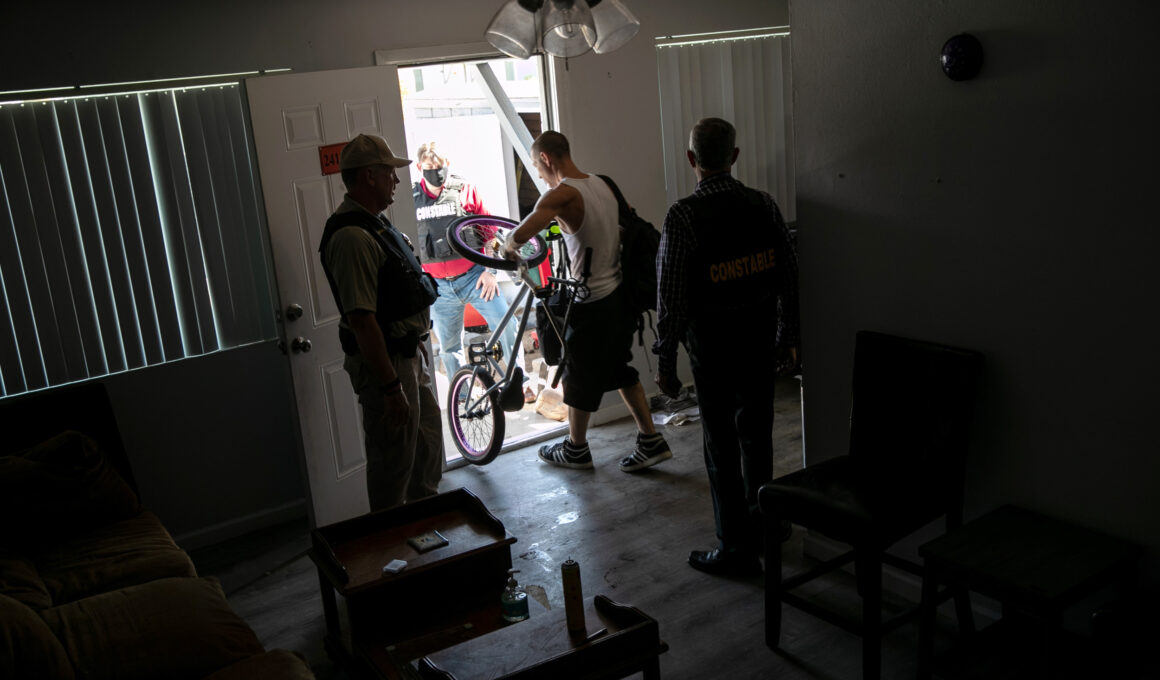The number of squatters being taken to court is skyrocketing in Georgia as homeowners continue to face issues with illegal tenants residing on their properties.
Georgia has seen a significant uptick over the past several years in squatting court cases. While reporting only three such cases in 2017, the number grew to 50 in 2021 and then 198 in 2023, according to a new report from Pacific Legal Foundation. The real number could be far higher, as the report covered courts in only 25 of the state’s 159 counties.
“These are low-risk crimes of opportunity and very appealing as a result,” Pila Jessie, the owner of Khorr Realty, told Newsweek. “Squatting cases are more prominent because there has been an increase in housing inventory and more short-term rentals across the country. This leaves more inventory for people to squat in.”
More From Newsweek Vault: How to Invest in Real Estate
The surge in cases might not actually reflect a higher incidence of squatting but could instead reflect the state’s harsher response. Georgia joined several other states in passing laws that criminalize squatting in April, and that could lead to a higher number of squatting court cases.
Governor Brian Kemp signed the Georgia Squatter Reform Act, making the act of squatting a criminal offense and also adding on additional rights for property owners.
Under the state’s previous law, homeowners had to file a landlord-tenant dispossessory proceeding or undergo what is called the “intruder-ejection” process. That usually took at least eight months for an eviction notice to go through and led to significant financial loss and distress.
More From Newsweek Vault: Learn Why This Finance Expert Will Never Invest in Real Estate
Under the new law, police can serve a criminal notice and remove squatters in less than two weeks.
Florida has passed a similar law that allows police to immediately remove a squatter from a property, and several other states have anti-squatting bills in the works.
New York state Senator Mario Mattera introduced several bills that would permit law enforcement to evict squatters immediately “based on a homeowner’s sworn complaint and without court involvement of any kind.”
Title and escrow expert Alan Chang told Newsweek: “Only a handful of states class this as a criminal matter, so most of the country considers it a civil proceeding, which means that it will be a slow and often costly problem for homeowners.”
The rise in squatting coincides with the growing issue of lack of affordable housing, studies show.
A record high number of renters, 22.4 million, said they spent more than 30 percent of their income on rent in 2022, according to the Harvard Joint Center for Housing Studies. And another report from the National Low Income Housing Coalition revealed that a full-time minimum wage worker would not be able to afford a one-bedroom apartment in at least 92 percent of counties in America.
In states that have not passed anti-squatting laws, residents are more easily able to take advantage of the rules in place to protect tenants, even if they are illegally occupying a home.
“A criminal’s job is to find ways to unjustly enrich themselves, and when they find a weakness in the law, word gets around to other criminals and the activity increases,” broker Ben Caballero previously told Newsweek.
Chang said property owners with a vacant home should keep it secure with quality locks and visit it on a consistent basis to reduce the likelihood of squatters.
“Little things like lights turning on, mail/newspapers being collected, and a car in the driveway will help keep squatters from seeing a vacant and easy target,” Chang said.








